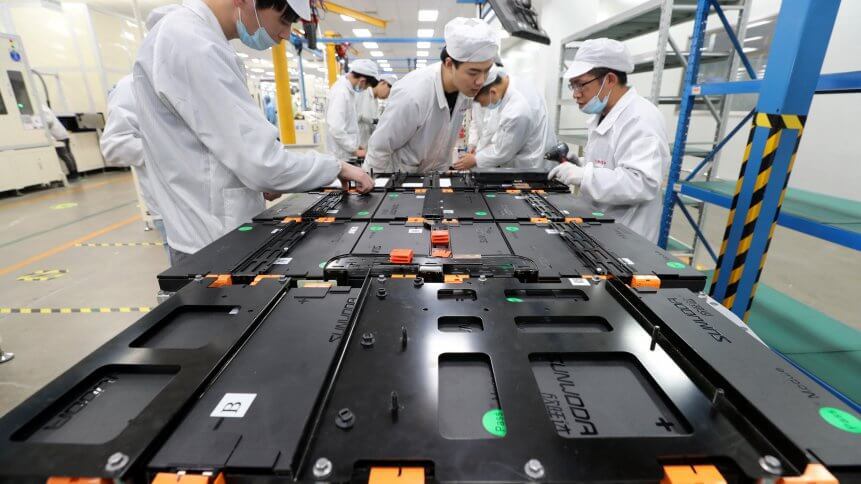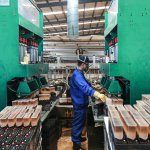
- S&P Global Market Intelligence forecasts demand for lithium will jump even higher to 641,000 tones, from an estimated 504,000, impacting prices for batteries.
- Supply is expected to jump to 636,000 tones of lithium carbonate equivalent in 2022, up from an estimated 497,000 in 2021.
- Such factors will inevitably have a direct impact on the cost of building cars, unless automakers choose to absorb it.
The automotive industry has been experiencing turbulent times over the last two years–mainly due to the chip shortages that have yet to see its end. Unfortunately, adding to its woes is the increasing price of batteries for electric vehicles (EVs), as demand for raw materials including lithium, has been outpacing supplies.
This is despite lithium-ion battery pack prices, which were above US$1,200 per kilowatt-hour in 2010, falling 89% in real terms to US$132/kWh by the end 2021. According to BloombergNEF, it is a 6% drop from US$140/kWh in 2020. While no doubt, ongoing cost reductions bodes well for the future of EVs, the impact of other rising commodity prices and increased costs for key materials is expected to put on further pressure on the industry this year.
Looking closely, other relevant commodities, especially the one used in cathodes, the most expensive part of a battery, have also been rising. For instance, the price of cobalt has doubled since last January to US$70,208 a tonne as of January this year, while nickel jumped 15% to US$20,045.
Experts reckon a lot of it is due to manufacturing ramping up. To put it simply, the more facilities open up and the more efficient processes get, the lower the costs. The catch is when the more efficiently these materials can be processed, the faster the industry goes through raw inventory. This, combined with low prices caused a shortage, and eventually a price increase.
With EVs gaining traction, will supply of lithium and prices of batteries impact the momentum?
In 2021, electric car sales more than doubled to 6.6 million, representing close to 9% of the global car market and more than tripling their market share from two years earlier, data from the International Energy Agency (IEA) shows. To top it off, all the net growth in global car sales in 2021 came from electric cars alone.
This year, BloombergNEF reckons that the global sales of electric passenger vehicles are projected to surpass 10.5 million–about four million above 2021 levels. Echoing that, S&P Global, in a December report, believes that demand for EVs will continue to grow, and with a strained supply of lithium, prices of the raw material will only continue hiking.
The firm even forecast that lithium chemical supply may reach 636,000 mt lithium carbonate equivalent in 2022, up from 408,000 mt in 2020. Even a number of other market players share the same sentiment for this year, due to bullish supply-demand dynamics. The good news though — it is predicted to be a temporary bubble.
The bad news is that 2022 is predicted to be so bad for the price of lithium that it will potentially rise by 50% again, according to reports. All the higher raw material costs would eventually push the average price of a lithium-ion battery pack to US$135 per kilowatt-hour in 2022, a 2.3% gain from this year’s level, according to BloombergNEF’s 2021 Battery Price Survey.
If that happens, it would mark the first increase in prices since at least 2010, when the average cost was US$1,200/kWh. It is fair to note BloombergNEF still predicts battery prices can fall as low as US$100/kWh by 2024–but that timing is now less certain.










